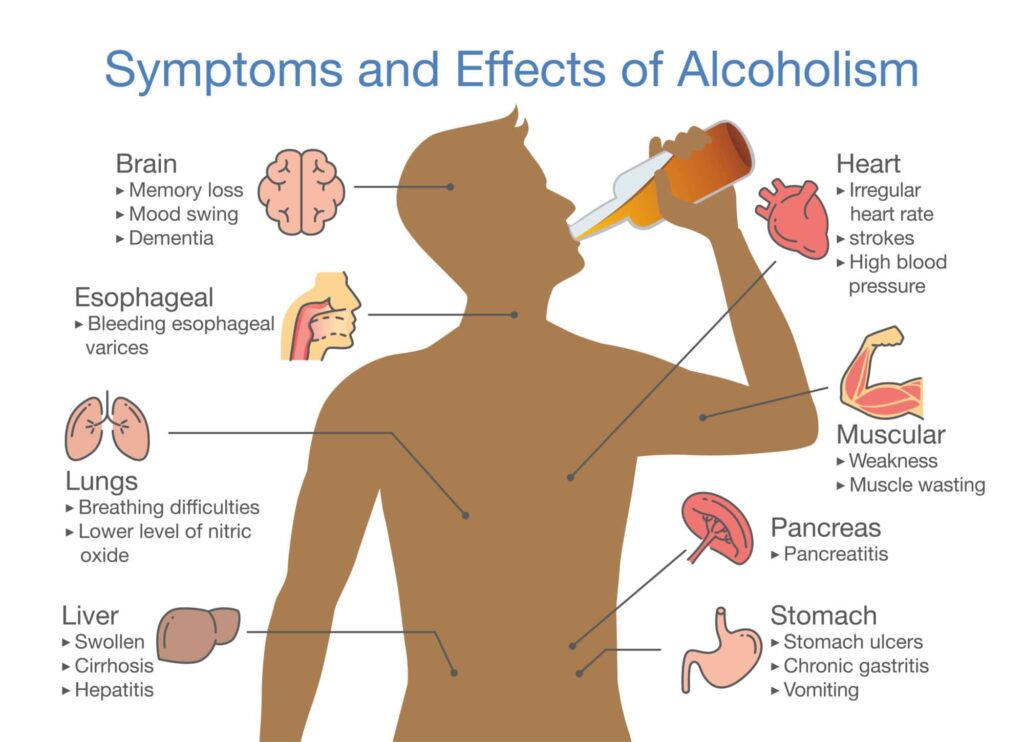
The Long Term Effects of Alcohol Abuse Can Be Devastating
Legacy Healing Center Blog
Heavy drinking is associated with many health complications.
Abusing alcohol can have many different consequences but the long term effects of alcohol abuse can lead to chronic physical and mental health problems. Heavy drinking over an extended period of time often leads users to begin suffering from long term effects of alcohol abuse.
While every person is different when it comes to their alcohol intake and how their body handles the drug, it’s important to understand how the long term effects of alcohol abuse can have drastic consequences.
We will review the long term effects of alcohol abuse and how both your body and mind can be severely damaged and you can learn how to fight alcoholism at LegacyHealing.com.
Understanding the Physical Effects of Alcohol
There are many alarming consequences to heavy drinking and the physical effects of alcohol abuse can produce a range of unhealthy ailments that affect the entire body.
“Although alcohol is consumed around the world, it is a toxin to the body. It is one of the most preventable causes of morbidity and mortality amongst humans. Many may have one or two drinks occasionally, and it does not cause any profound negative effects. However, alcohol ultimately makes one sick, especially when used chronically and heavily,” states Dr. Ashish Bhatt of Legacy Healing Center. “The fact that it is legal may give one the false impression it is safe to consume over periods of time and in quantities that may be considered benign, when in fact it is causing much more harm than realized. Heavy and prolonged use of alcohol can cause illnesses ranging from heart and liver diseases, high blood pressure, neurological issues, dementia, confusion, anxiety, and depression, just to name a few. Even susceptibility to certain cancers has been correlated with alcohol use. For many, even those who do not suffer from full-blown addiction, there becomes a chronic pattern of negative consequences which drags on, worsens over time, and often does not get addressed until something devasting happens. Once physical dependency occurs, withdrawal from alcohol can be life-threatening.”
Although every organ will suffer from alcohol abuse, there are some organs more at risk of suffering the damage of heavy drinking.
Organs Affected By Heavy Alcohol Use
The organs most affected include:
– Liver: A common symptom of long term alcohol abuse is liver disease. As alcohol abuse persists over the years, it can cause the liver to be inflamed or scarred. Other issues that could develop include alcoholic hepatitis, fatty liver, fibrosis, and cirrhosis.
– Pancreas: Pancreatitis can develop due to the pancreas producing harmful substances which can cause inflammation and impair digestion.
– Heart: Overtime, long term alcohol abuse can weaken a person’s heart which leads to disruptions in how oxygen and nutrients are delivered to the body’s vital organs.
– Digestive system: Wearing down the lining of the stomach while increasing the production of stomach acid is a common symptom of alcohol abuse. Alcohol abuse can also impact how the body controls blood sugar levels.
In addition to the damage to vital organs and vital systems, the long term effects of alcohol abuse can also lead to additional health concerns including:
– Memory loss: Chronic drinking can lead to a deficiency in vitamin B1 which can result in a condition called Wernicke-Korsakoff Syndrome that impairs memory.
– Attention Span Issues: Binge drinking can also impact a user’s ability to pay attention and use visual memory.
– High Blood Pressure: Having just more than 3 alcoholic drinks in one setting can temporarily increase your blood pressure, while prolonged drinking can lead to long-term increases in your blood pressure.
– Stroke: When a heavy drinker begins to suffer from liver damage, it can eventually lead to the liver having trouble producing substances that prevent blood clots which can lead to suffering a stroke.
– Irregular Heartbeat: Binge drinking also increases the risk of an irregular heartbeat known as atrial fibrillation.
With so many physical consequences resulting from long-term abuse of alcohol, curbing your drinking can prevent many health complications down the road.
Mental Health Effects of Alcohol Abuse
While it can be easier to spot the physical effects of alcohol abuse, long term use of alcohol can also cause mental health issues.
In addition to short-term complications like memory loss and lack of coordination, long term alcohol abuse also causes interruptions to the main functions of the brain as well as how it’s structured.
By acting as a depressant to the body’s Central Nervous System, alcohol can also affect mood changes, impair judgment, cause a loss of consciousness, and slow reaction times.
Psychiatric syndromes such as depression, sleep disorders, bipolar disorder, and psychotic disorder can all present mental problems for heavy drinkers.
As alcohol intake increases, so do the chances of developing long-term health issues. If you feel alcohol is causing both mental and physical harm to your health, there are treatment options available.
For anyone suffering from alcohol addiction, please call 888-597-3547 to learn more about your treatment options and to start your road to recovery.